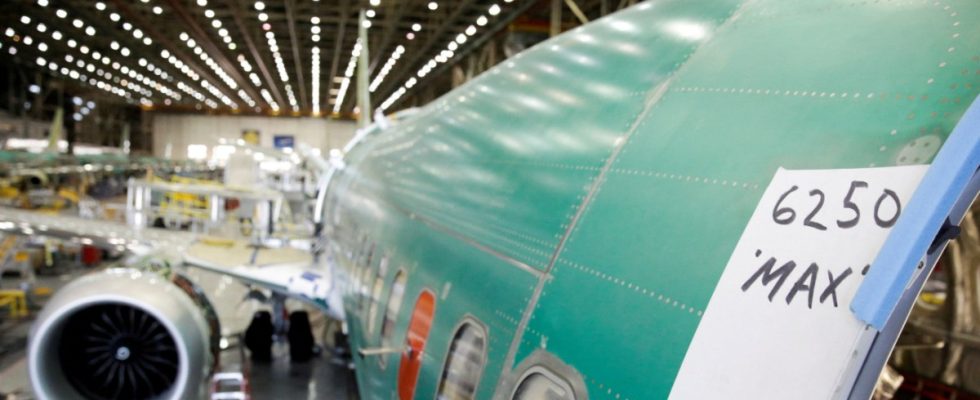At the Singapore Airshow these days, the question occasionally arose as to where Stan Deal actually was. After all, the event is Asia’s largest aviation event of the year, and the region is one of the two most important markets for the American aircraft manufacturer Boeing. But Deal, head of Boeing’s civil aircraft division, did not show up, neither in the chalets where sales negotiations normally take place nor in the exhibition halls. This didn’t go down well with the hosts.
After all, it has been clear since late Wednesday evening that Deal had other important things to take care of at home. In a letter to employees, he announced a fairly radical restructuring of his management. The boss of the 737program, Ed Clark, he said goodbye with friendly words, but the bottom line was that it was probably an expulsion. Elisabeth Lund, who was previously responsible for the production of all civil aircraft, will become the new quality supervisor; her predecessor also appears to have to leave the company, although this is not explicitly stated in the memo.
Katie Ringgold, Clark’s successor at the helm 737program, has worked at Boeing for twelve years. She was previously responsible for deliveries from the plant in Renton, Washington, USA.
The changes have to do with the dramatic crisis that Boeing is currently facing. The last time there was a door panel was at the beginning of January 737-9 of Alaska Airlines fell out in the middle of the flight because Boeing technicians forgot to properly fasten it with screws after a repair. With a lot of luck nothing serious happened in the accident. Quality defects have been plaguing them for years 737series, which is also compared to the Airbus A320neo has lost a lot of market share because demand in the short and medium-haul jet segment has shifted significantly towards the larger variants. That’s where it is 737 not good enough for many customers because of their limited range. And of course the image is further tarnished because of the two Lion Air and Ethiopian crashes, in which 346 people died in 2018 and 2019. Boeing had hastily installed new flight control software without properly training pilots. The company has now significantly defused the software.
The Boeing boss has long been considered counted
As a consequence of the latest breakdown, the American Federal Aviation Administration (FAA) has taken action: Boeing is not allowed to sell more than 38 copies of the aircraft per month until further notice 737 produce – Airbus had an average of 48 machines in 2023 A320neofamily and wants to grow to 75 by 2026. The FAA is also currently examining Boeing’s production at several plants and trying to identify deficiencies. A detailed report is expected in a few weeks.
The most recent personnel decisions must also be viewed in this context. Clearly, Deal wants to demonstrate to the FAA that Boeing is making drastic changes. He certainly doesn’t do this without self-interest. Because the deal has long been considered strong. There are always rumors circulating in the industry that the Boeing boss supposedly has to go. For almost five years, he has held on for a long time in the job he took on after the two accidents, given the ever-present drama.
The question now is whether he has really created enough freedom for himself with Clark and Lund. The FAA audit is likely to reveal further embarrassments about production defects for which he, as head of the division, is ultimately responsible. And the idea of exchanging top managers in the organization is not new either: it has been done in the last six years 737-Program was run by five different bosses, without any visible signs of significant improvements.

